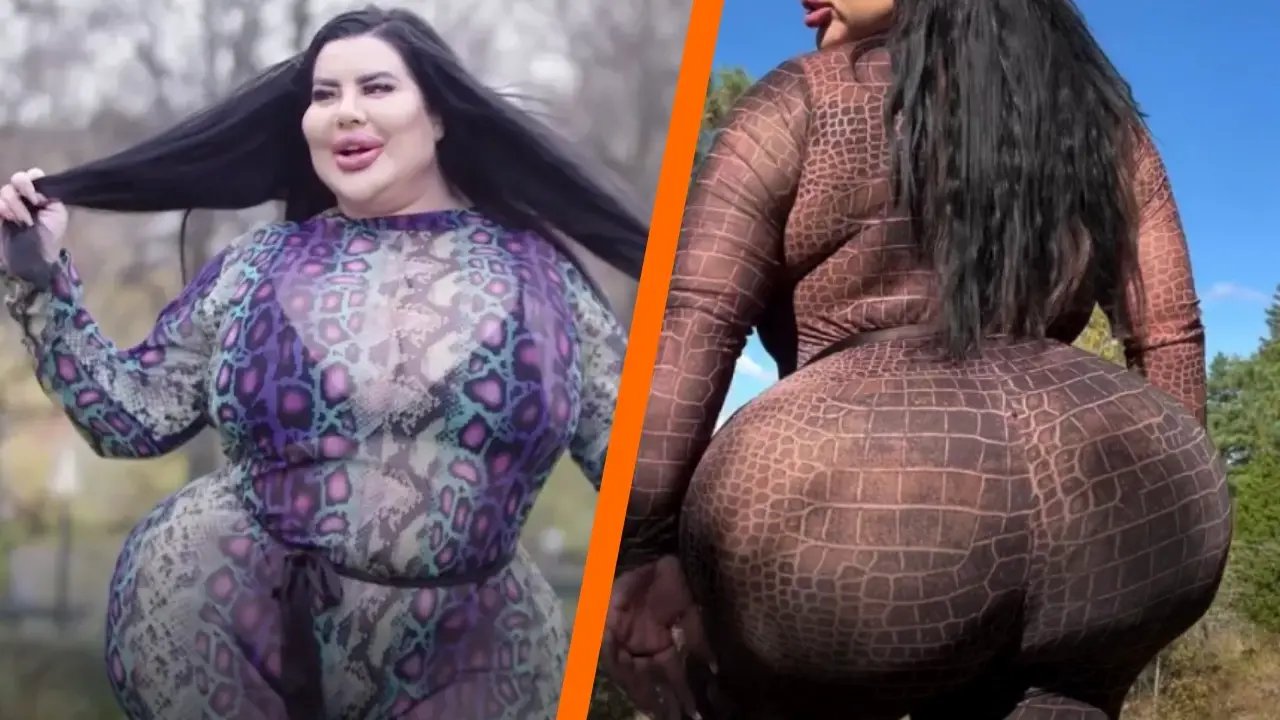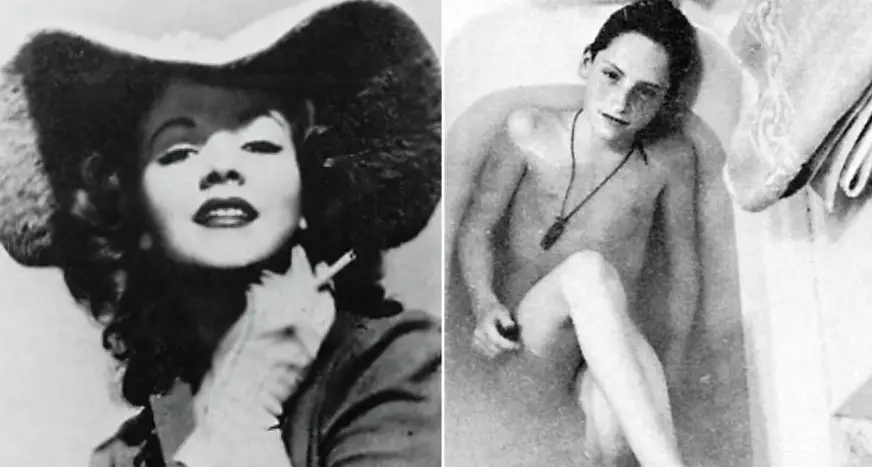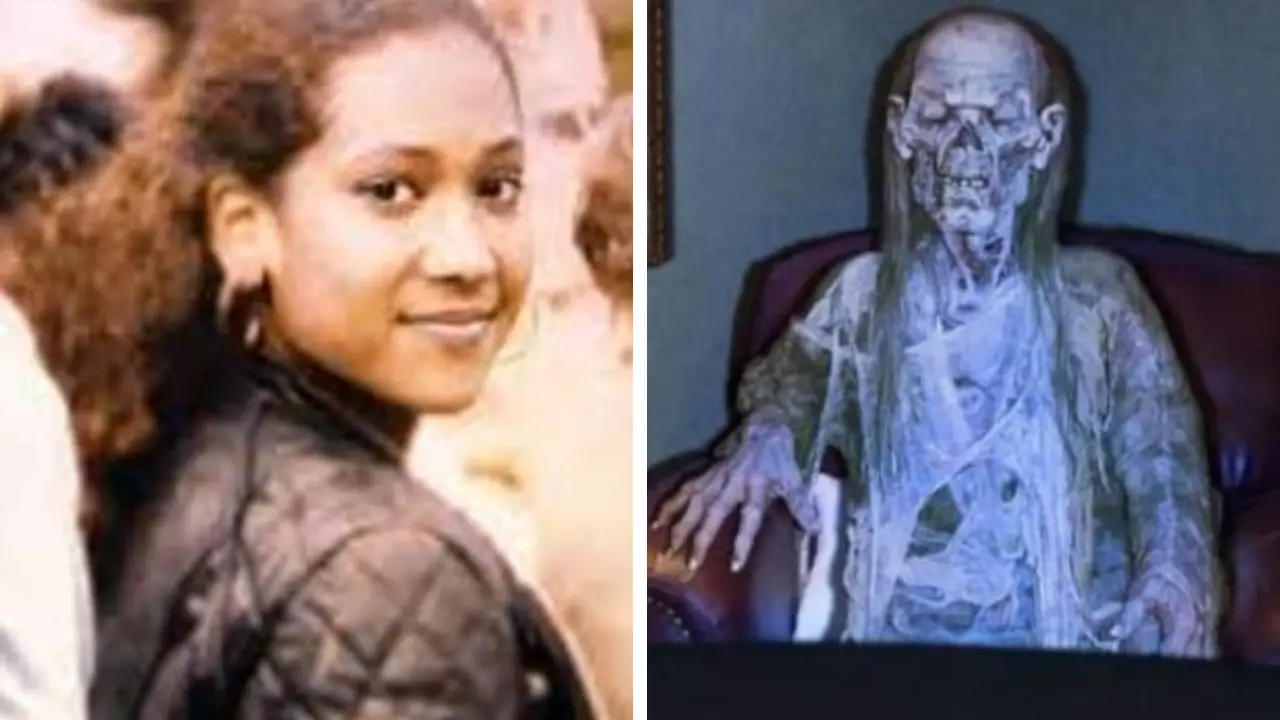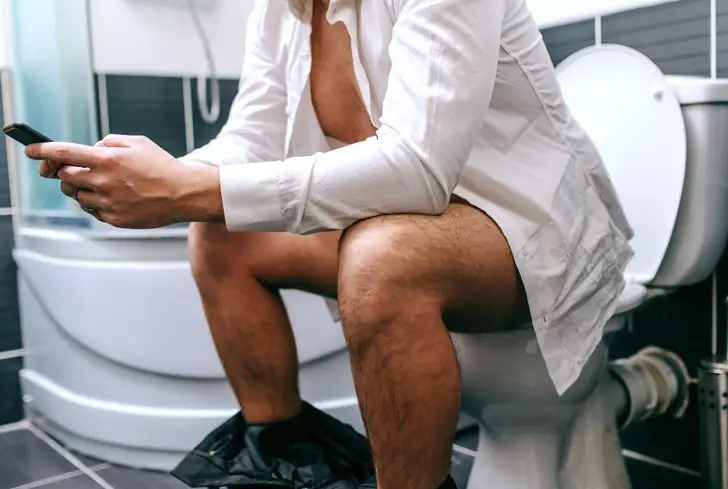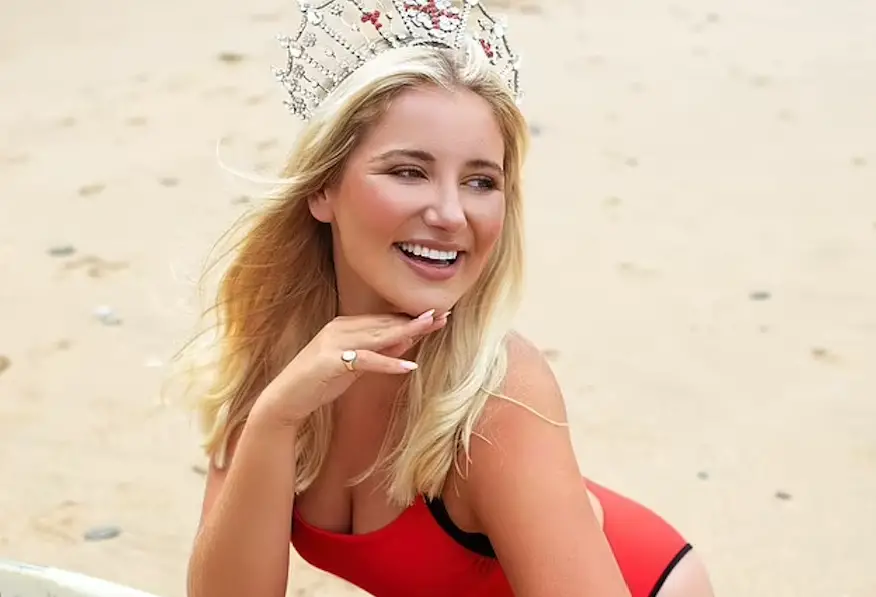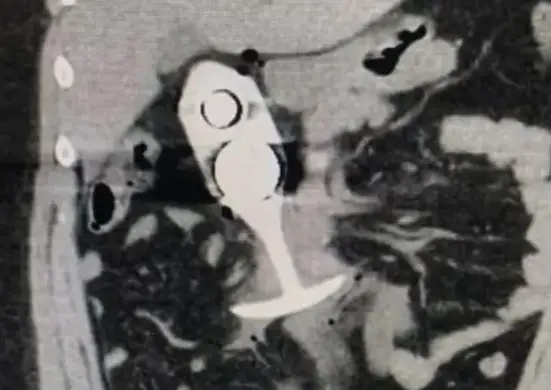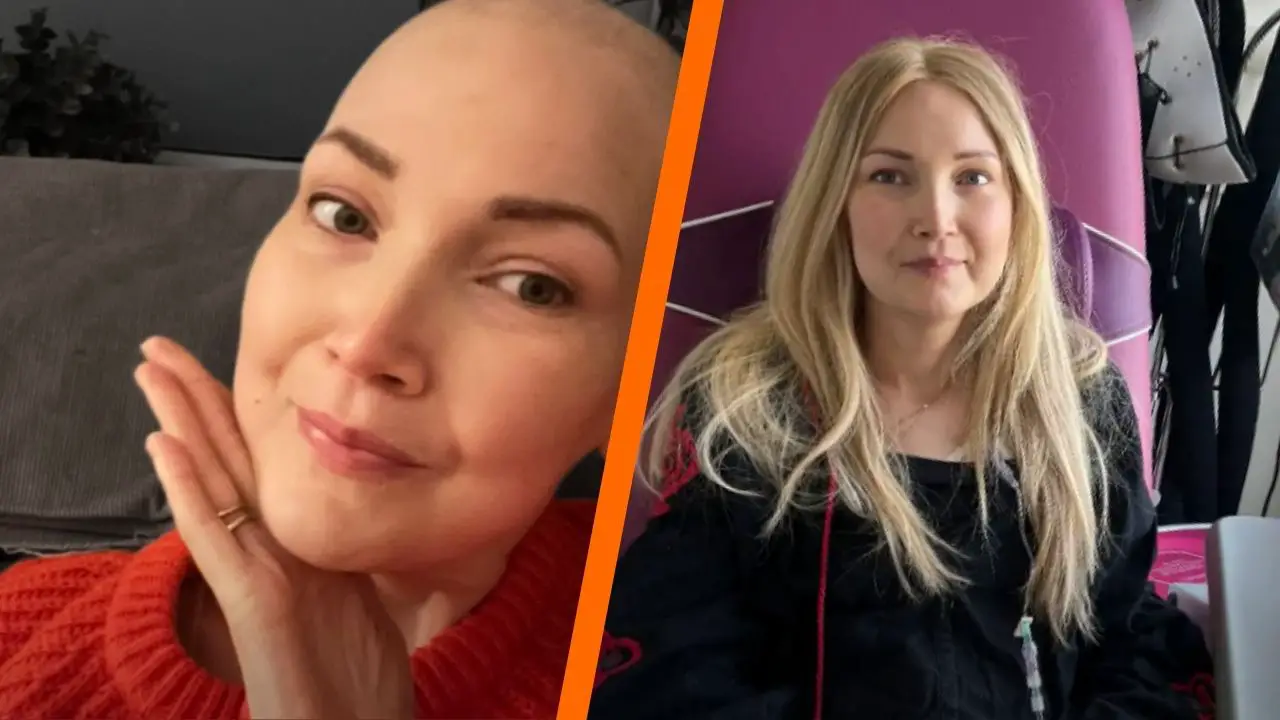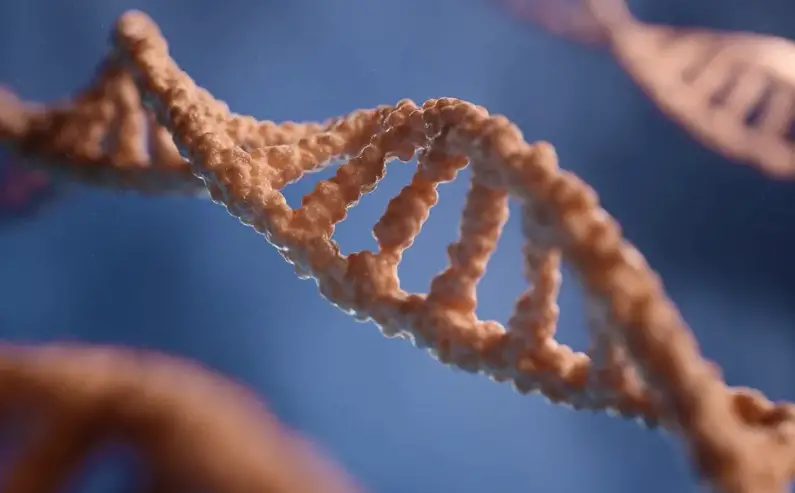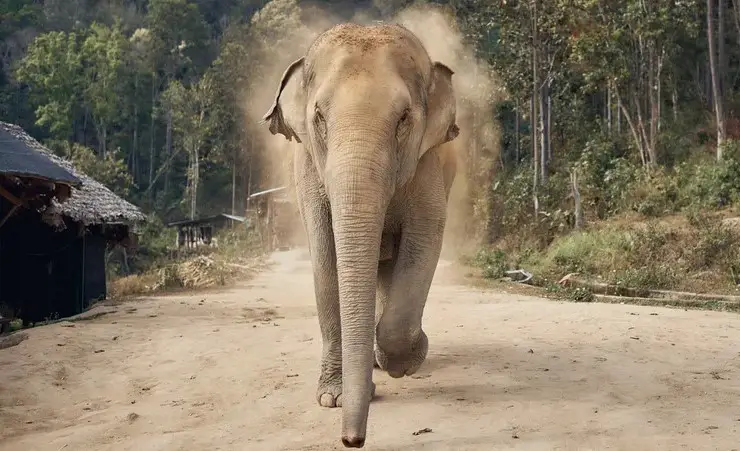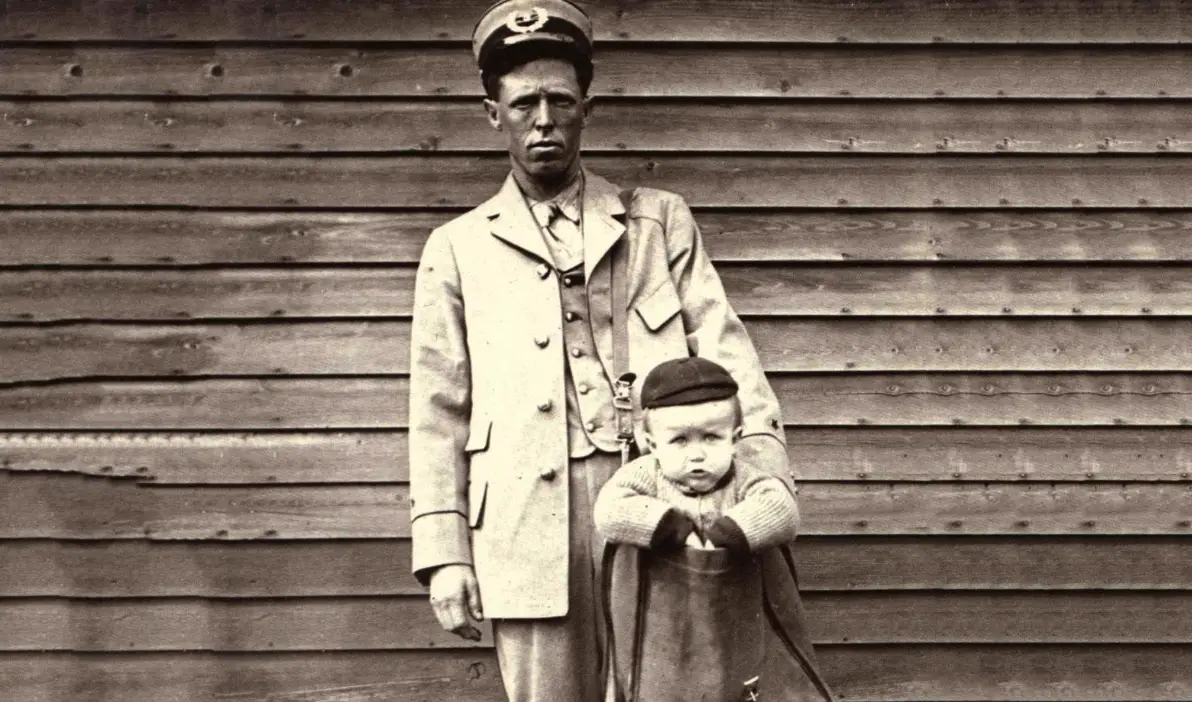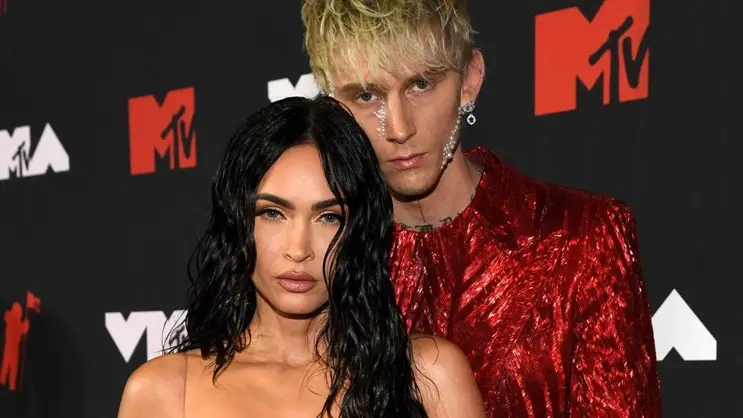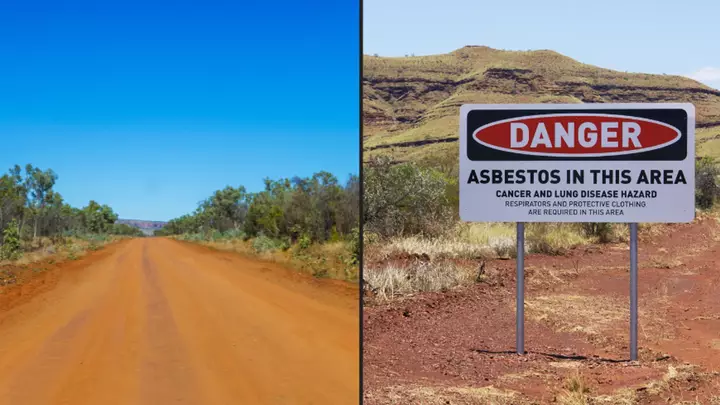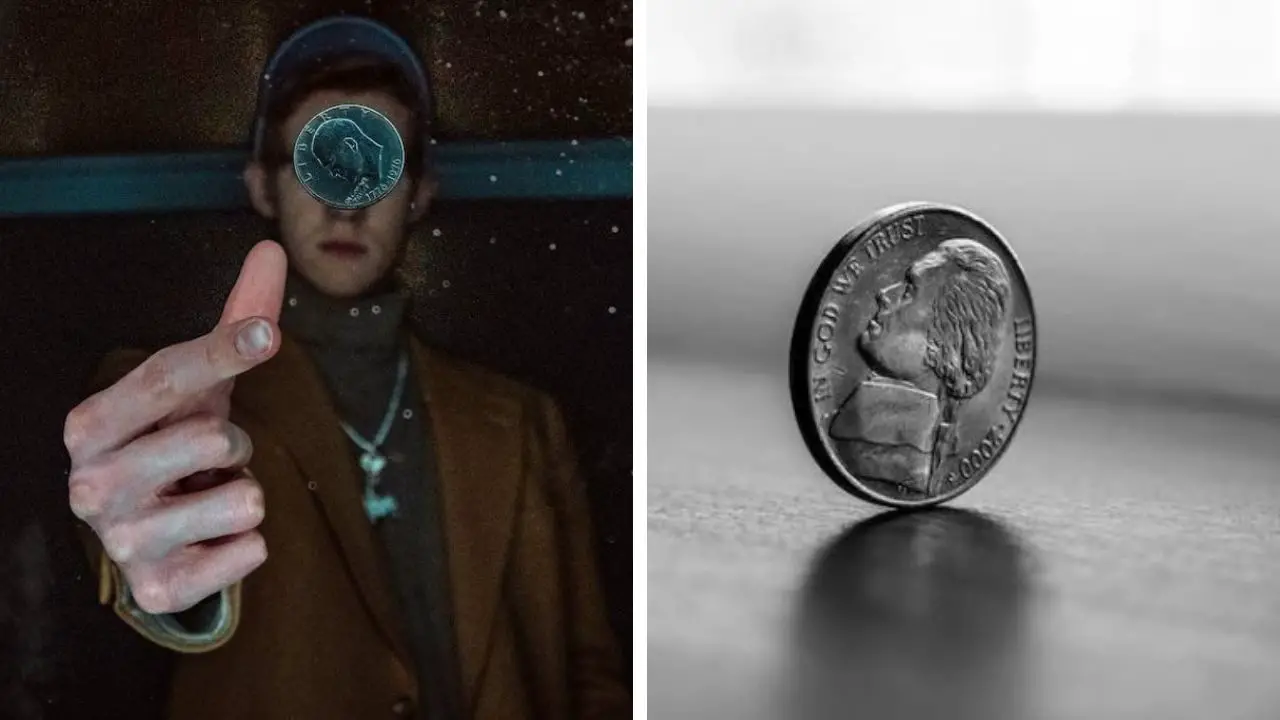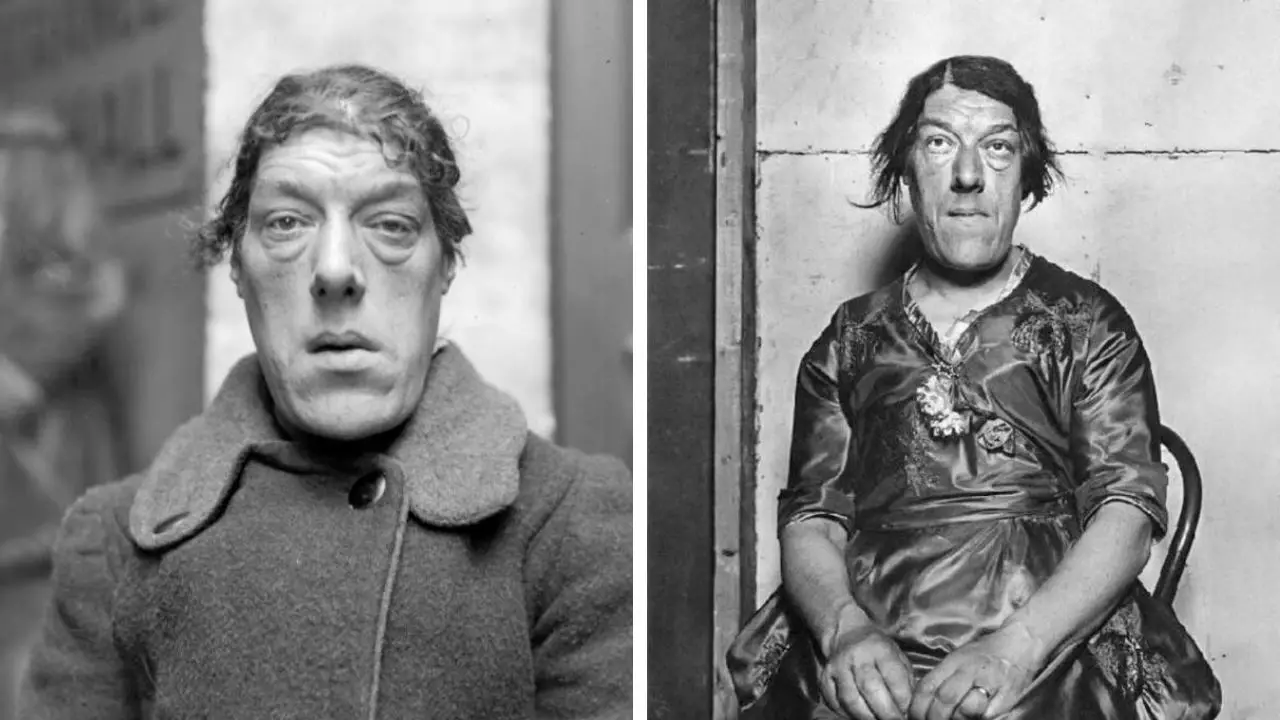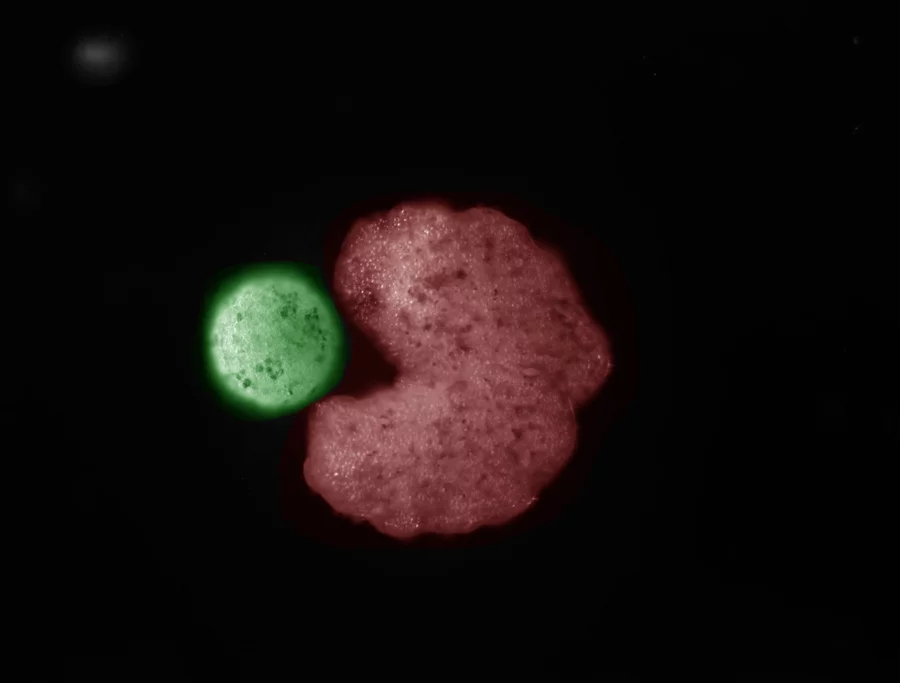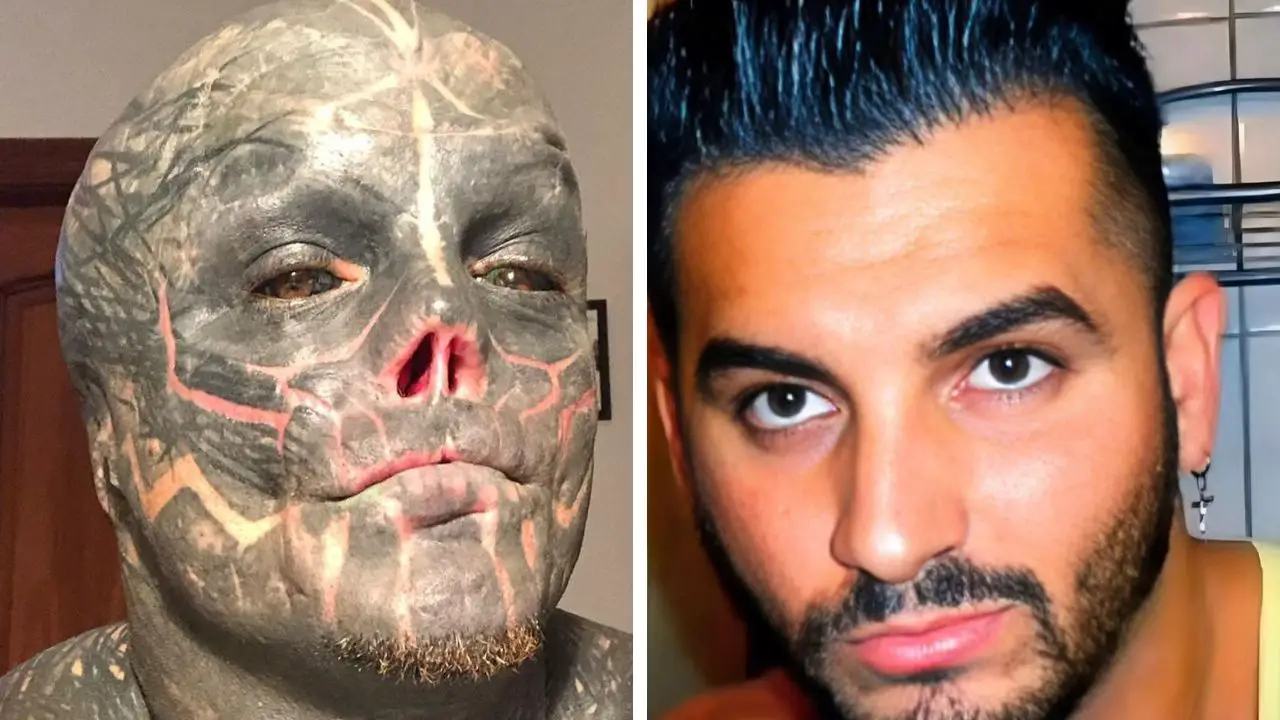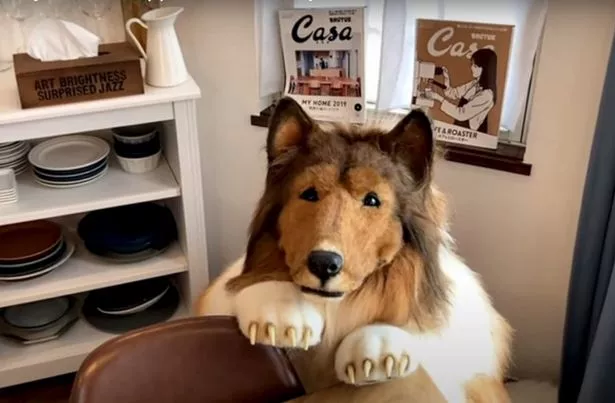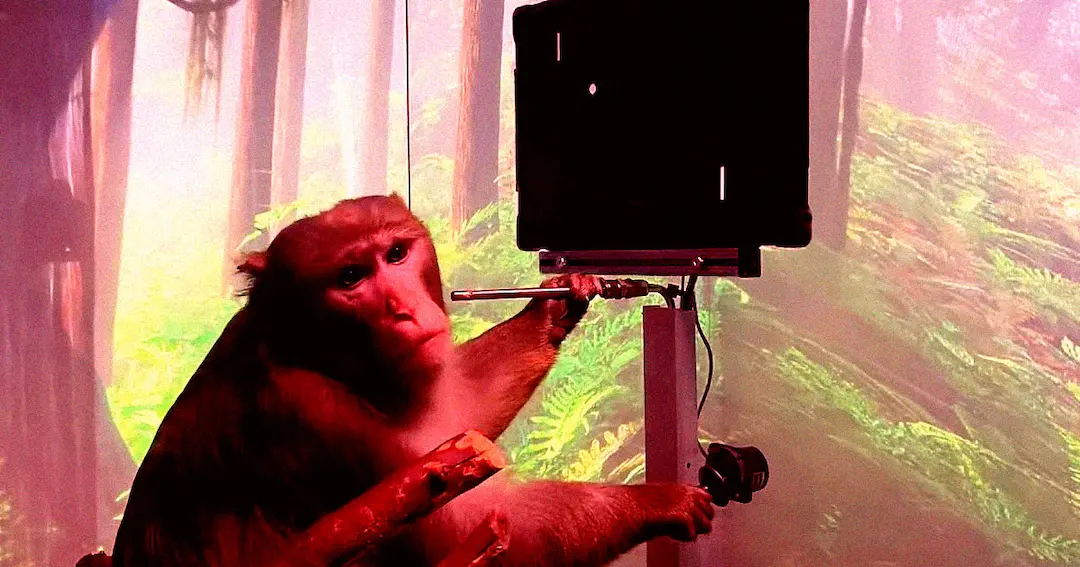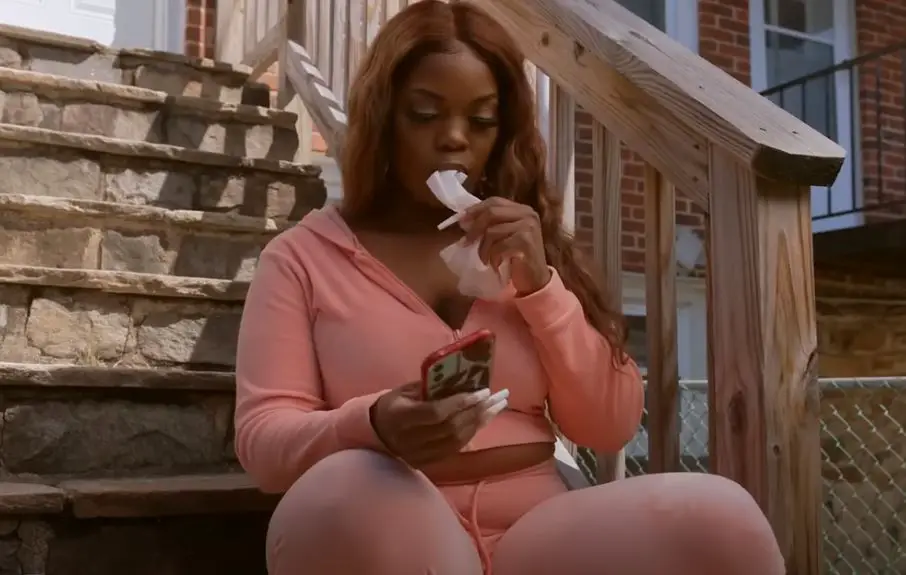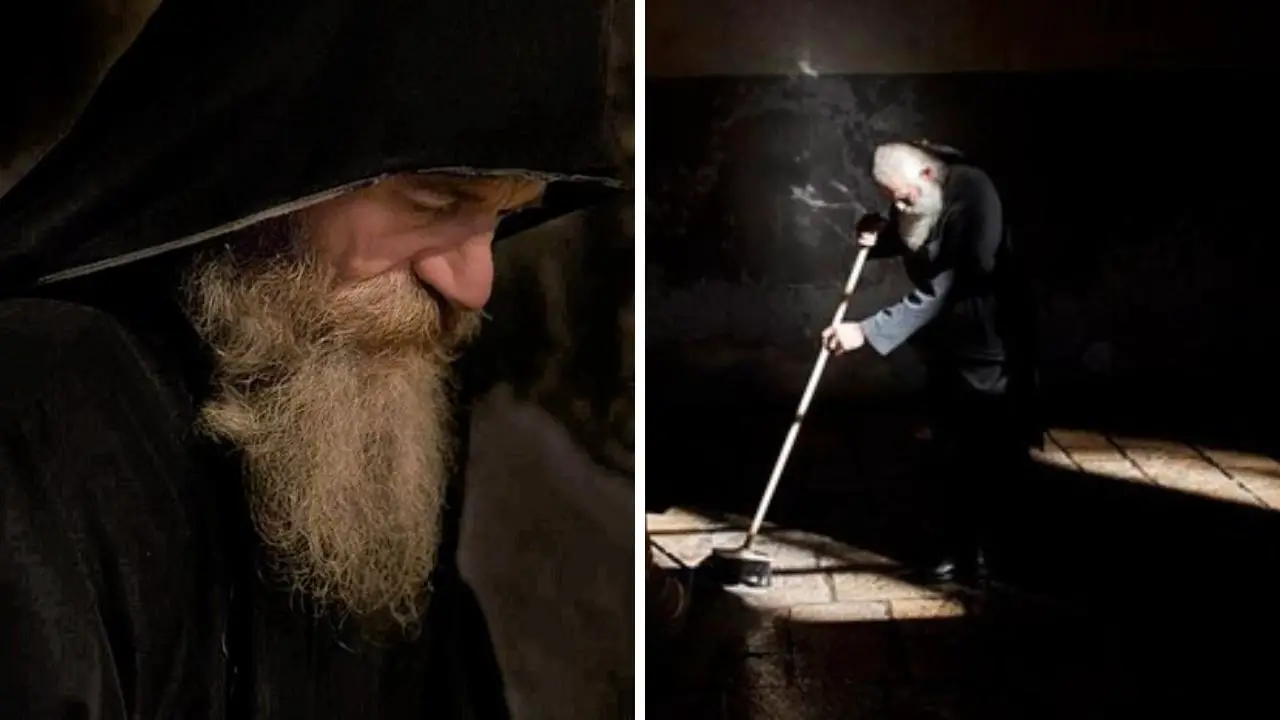Bodi Tribe (Ethiopia): Men with the Biggest Belly are Most Desired by Women
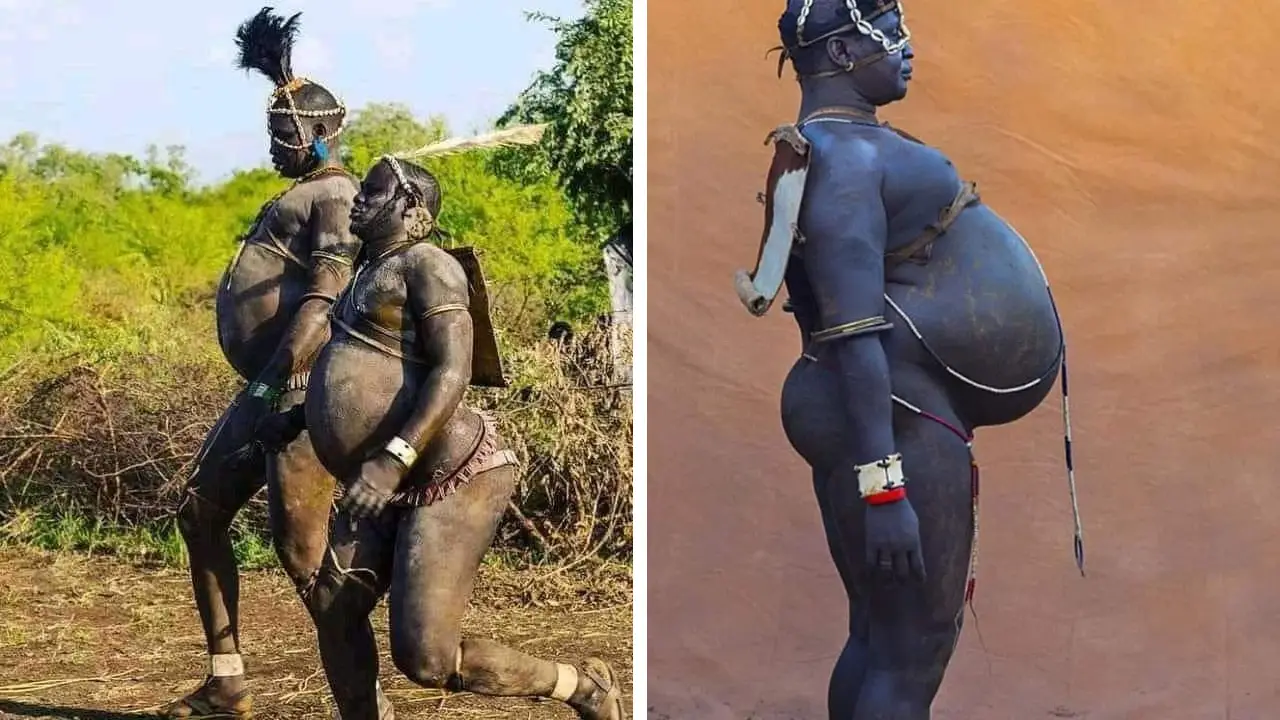
In the heart of Ethiopia’s remote Omo Valley lives a tribe whose customs might make you scratch your head and marvel at the rich tapestry of human tradition.
Meet the Bodi, or Me’en people, where being slim isn’t exactly the ticket to romance.
Instead, the men with the biggest bellies are the ones most sought after by women, and there’s a fascinating, albeit unconventional, ritual behind this preference.
Imagine this: six months of disciplined consumption, not of the latest diet trends you might see elsewhere, but of a potent mix of cow’s blood and milk.
For the Bodi men, this isn’t about looking good for a night out; it’s a serious bid to become the fattest among their peers.
The reward? Eternal hero status within the tribe, crowned at the annual Ka’el ceremony.
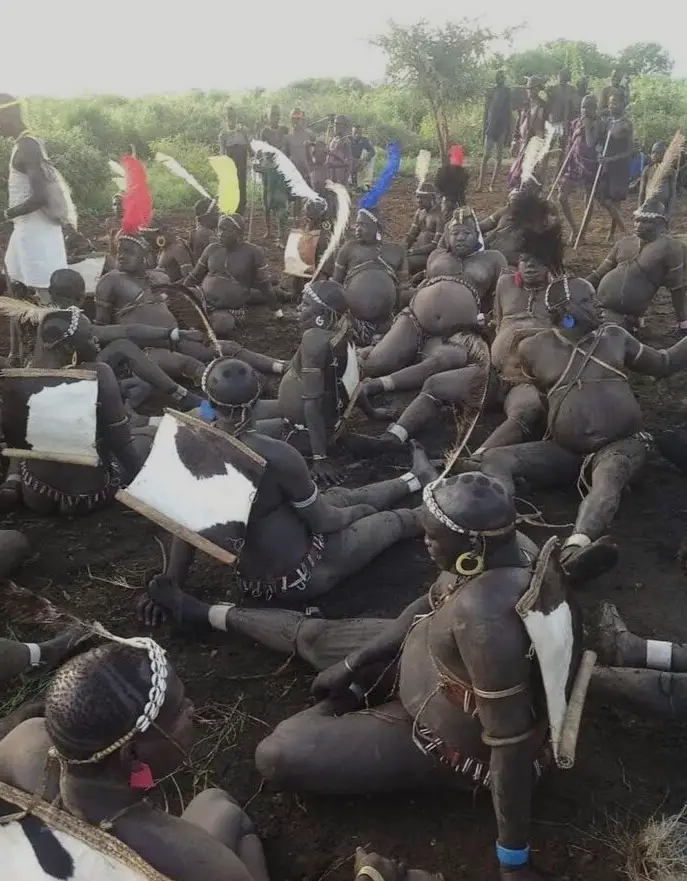
French photographer Eric Lafforgue, known for his stunning captures of remote cultures, spent time with the Bodi as they prepared for the Ka’el New Year.
His incredible photos offer a rare glimpse into this unique tradition, showcasing men who have undergone this intensive regimen to emerge as the fatter, and therefore more desirable, individuals in their community.
Lafforgue describes a scene that’s as challenging as it is fascinating. “The first bowl of blood is drunk at sunrise.
The place is invaded by flies. The man must drink it quickly before it coagulates but some cannot drink everything and vomit it,” he recounts.
Picture this: under the scorching African sun, men are sitting on the ground, facing bowls filled with a thick, two-litre mixture of cow’s blood and milk.
It’s not exactly a light breakfast, and not everyone manages to keep it down. But for those who can, the goal is clear – expand their waistlines to become the envy of the village.
What’s particularly striking about this practice is the reverence for the cows involved.
“The cows are sacred to the Bodi tribe so they are not killed,” Lafforgue explains.
The blood is drawn with care, using a spear or axe to make a precise incision, then quickly sealed with clay to preserve the animal’s life.
This deep respect for the cattle underscores the symbiotic relationship between the tribe and their livestock, making the ritual not just about physical transformation, but also about honoring the animals that sustain them.
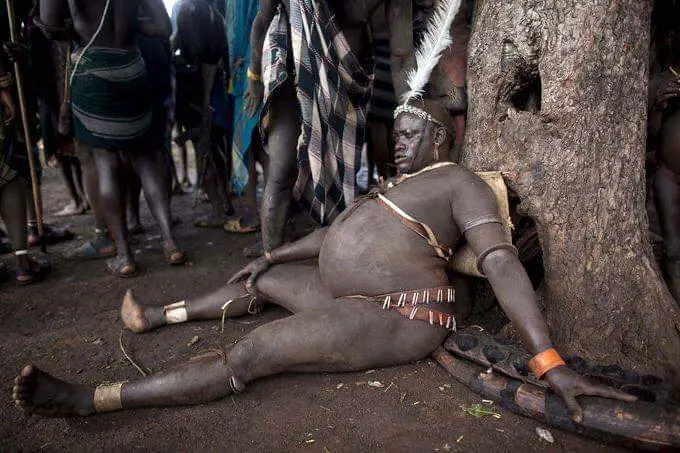
The competition culminates at the Ka’el ceremony each June, but the journey there is no easy feat.
Six months of consuming cow’s blood and milk results in men with significantly enlarged physiques.
On the day of the ceremony, these men cover their bodies with clay and ashes, adding another layer of symbolism and tradition before embarking on the walk to the sacred tree where the ceremony takes place.
The weight gain from the diet makes even the short trek a formidable challenge.
“Some fat men are so big that they cannot walk anymore,” Lafforgue notes, highlighting just how extreme this practice can become.
One memorable moment Lafforgue shares is of a man so unable to walk the distance that he asked to use his car.
Once inside, he didn’t slow down; instead, he started drinking more milk and blood, determined to stay the fattest right up to the end.
It’s a testament to the tribe’s commitment to tradition and the lengths to which they will go to uphold their cultural values.
The ceremony itself is a vibrant display of communal pride and religious significance.
Men walk in a circle around the sacred tree, a central figure in the Bodi’s spiritual life, while women support them by offering alcohol and wiping away sweat.
The atmosphere is electric, a mix of reverence and celebration as the community watches the competition unfold.
The chosen fattest man is honored not just with hero status but also with a prophetic examination of his health – the elders inspect his stomach and blood to foresee the tribe’s future.
It’s a blend of physical prowess and spiritual insight, intertwining the men’s physical transformations with their roles as bearers of hope and prosperity for their people.
Yet, this deeply ingrained tradition is under threat. The Ethiopian government’s plans to resettle 300,000 people onto Bodi lands cast a long shadow over their way of life.
For a tribe so dependent on their land and traditions, the prospect of resettlement is daunting.
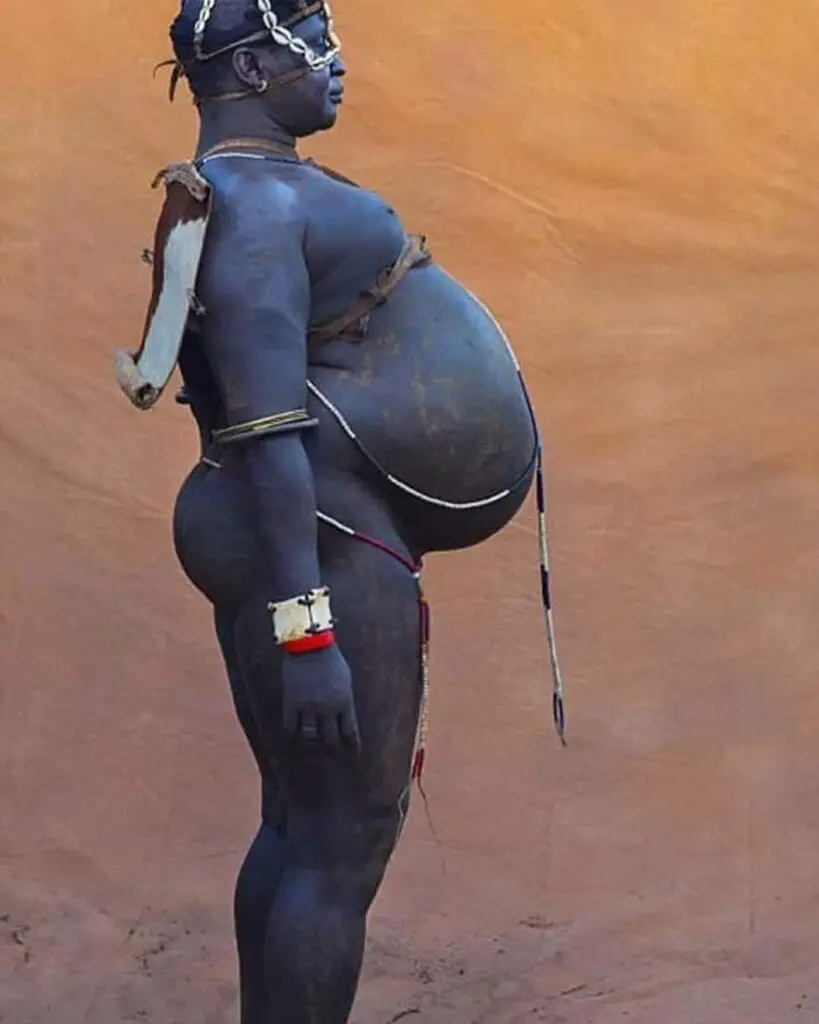
It’s not just about moving; it’s about the potential loss of cultural identity and the disruption of practices that have been passed down for generations.
The Bodi continue to resist, clinging to their traditional lifestyle and celebrating Ka’el each June despite the looming threat.
It’s a poignant reminder of the fragile balance between tradition and modernity, and the challenges indigenous communities face in preserving their heritage in the face of external pressures.
As June approaches each year, the Bodi tribe prepares with unwavering dedication.
Every family can present an unmarried man for the challenge, a rite of passage that involves not just physical endurance but also personal sacrifice.
Once chosen, the man retires to his hut, forbidden from moving or engaging in sexual activity for the duration of the six-month fattening period.
It’s a period of solitude and transformation, a time when the man becomes the focus of the community’s aspirations.
The ritual diet is intense and, frankly, brutal. Consisting solely of the sacred cow’s blood and milk mixture, the men must consume it throughout the day.
The process is not without its hardships. “The men have to drink the two-litre bowl of blood and milk quickly before it coagulates,” Lafforgue explains.
The high temperatures add another layer of difficulty, making the mixture unpalatable and challenging to ingest.
The struggle is real, and not everyone makes it through.
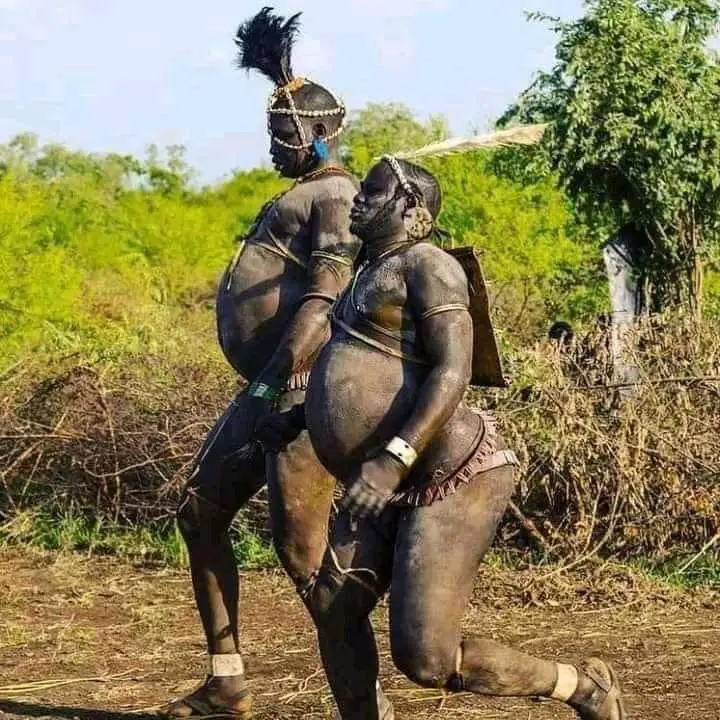
Some men find themselves unable to handle the volume and end up vomiting, a stark contrast to those who successfully adhere to the regimen.
Despite the difficulties, the drive to become the fattest man remains strong.
It’s not just about the physical transformation; it’s about attaining a revered status that elevates the man within the tribe.
“Becoming a fat man is the dream of every Bodi kid,” Lafforgue shares, capturing the aspirational aspect of the tradition.
The pride that comes with being crowned the fattest man is immense, and even after a few weeks of returning to a more regular diet, the man remains a hero for life.
It’s a legacy that transcends the temporary nature of the fattening process, embedding the man’s name in the tribe’s collective memory.
The ceremony ends with the slaughter of a cow, performed using a huge sacred stone.
This act is both a culmination of the fattening process and a ritualistic offering that ties back to the tribe’s respect for their livestock.
The elders then scrutinize the man’s stomach and blood, interpreting the results as signs of the future.
It’s a moment where physical transformation meets spiritual prophecy, reinforcing the interconnectedness of the tribe’s physical and metaphysical beliefs.
However, the future of this practice is uncertain. With the Ethiopian government’s resettlement plans looming, the Bodi’s traditional way of life is at risk.
The ceremony continues for now, with the tribe steadfastly adhering to their customs despite external threats.
Each year, the cycle renews as a new generation of Bodi men steps up to participate, ensuring that the tradition remains alive, at least for the time being.
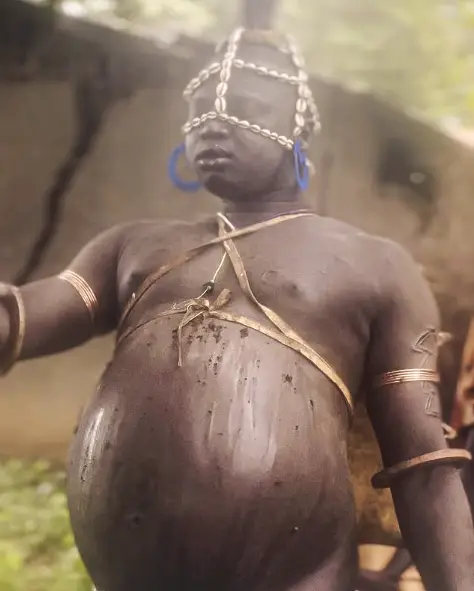
What strikes me most about the Bodi tribe’s practice is how it underscores the diversity of human cultural expressions.
In a world that often celebrates uniformity, the Bodi’s unique preferences and rituals remind us that beauty and desirability are deeply subjective and culturally defined.
The notion that bigger is better, at least in the context of the Bodi, challenges our preconceived notions about body image and societal standards.
Moreover, the Bodi’s resilience in the face of potential displacement is both inspiring and heartbreaking.
Their determination to maintain their traditions, even when threatened by government policies, speaks to the strength of cultural identity.
It’s a poignant example of how communities cling to their heritage as a source of pride and continuity, even when the odds are stacked against them.
Lafforgue’s photographs capture not just the physical transformation of the Bodi men, but also the spirit of a community bound by tradition and mutual respect.
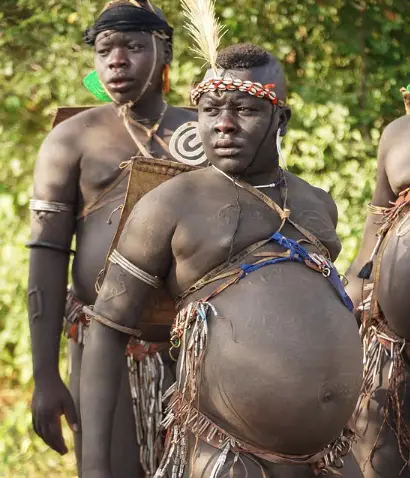
Through his lens, we witness a world where the journey to become the fattest man is not just a personal challenge but a communal endeavor, deeply intertwined with the tribe’s values and beliefs.
In a broader sense, the Bodi’s ritual raises important questions about the preservation of indigenous cultures in the modern world.
As globalization and governmental policies continue to encroach on traditional lands and lifestyles, the Bodi tribe’s struggle is emblematic of a larger battle faced by many indigenous communities worldwide.
It highlights the delicate balance between respecting cultural diversity and addressing contemporary societal changes.
While the Bodi’s customs may seem unusual to outsiders, they hold profound significance within their cultural context.
Understanding and appreciating such diversity is crucial in fostering a more inclusive and respectful global society.
As the Bodi prepare for another Ka’el ceremony, the eyes of the world, perhaps through the lens of photographers like Lafforgue, watch with a mix of curiosity and admiration.
The men who emerge from six months of disciplined eating, covered in clay and ashes, are not just participants in a ritual; they are living embodiments of their tribe’s heritage and values.
Their journey to become the fattest man is a testament to the enduring power of tradition and the human spirit’s capacity to uphold cultural identity in the face of change.
Watch: The Fattest Man Contest!
For now, the Bodi continue their ancient practices, celebrating Ka’el each June with the same fervor that has defined their community for generations.
Whether the tradition will survive the challenges posed by modernity and governmental intervention remains to be seen.
But one thing is certain: the story of the Bodi tribe is a captivating chapter in the rich mosaic of human culture, offering a unique perspective on beauty, tradition, and the lengths to which a community will go to honor its heritage.

